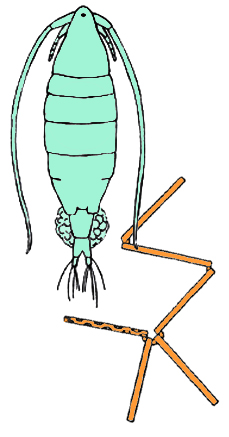“The first step in developing a solid waste management plan is to first characterize the waste stream you are dealing with.”
~Me, to every urban planning student, ever
If you were ever a student of mine, it is 99.9% possible that you received the above pearl of wisdom live, between the magical hours of 6-10 pm, at Pratt Institute (#HigginsHallNorth). It was just the type of pithy remark that could pivot a lively discussion on dog waste composting into the pie charts I keep handy on waste taxonomy.
Plastic marine debris is what bobs along beside me all day long. Our present anchorage is in the Eastern Lemmon Cays of Guna Yala, a place without curbside recycling. Or curbs.
In my field of vision are about a dozen other boats, and about a half dozen Guna islands, each with a family or two on it. Of the boats, I would say about half are Panamanian, and half are from elsewhere in the Americas or Europe. The local industries are: fishing from dugout canoes, coconut farming, mola making, and selling all of the above to the people on the boats. A few of the islands have makeshift bars where one can snorkel with a lukewarm can of Balboa and eat almuerzo at a picnic table while immersed in a sizzling reggeton mix. A class of skiff called a panga will ferry daytrippers from the mainland, bring produce or other staples from the city, and return within the day.
As one does, I mention marine plastic in conversation with anybody I talk to – So, how about that plastic, huh?
We heard one of the islands’ residents referred to as banditos (bad hombres!!!) because they were spotted dumping garbage from their little island bar in open water nearby. Escándalo!
We boat people wince while we fork over some bucks for our garbage go off on the pangas to shore, where – fingers crossed(!) – it will be burned on land. I live in fear that anything of ours will resurface and implicate us. Does that eggshell look familiar?
I can only assume we do better than most of the other boats by being penny pinchers. The cheapest and least convenient way to provision (our specialty) tends toward less packaging and non-disposable containers. I.e. I have started making cloth bags for all things, as in, “Oh what a lovely watermelon, I shall make you a bag.”
The Gunas rake through their beach litter each day, tidying up the edges, and inspecting for anything useful – animal, vegetable or mineral. On the island closest to us, F saw the mother-in-law score a plastic emergency whistle out of the surf and immediately start blowing it at the son-in-law with a toothy grin. If an item is deemed un-useful, however, it just get chucked back.
An(other) Italian named F from a neighboring boat began a one-man plastic picking party, and over the course of three days amassed enough for a roiling bonfire that made my throat sting well into the evening.
Marine debris is also very dependent on weather. We are still within sight of the mainland, which slopes steeply into mountainous jungle. Heavy and frequent rains send downed trees and any sort of jungle debris – including anthropogenic litter – out our way.
Now here comes the gut punch, in the form of a quote from Scripps marine ecologist Paul Dayton, via my current favorite book, Mapping the Deep by Robert Kunzig, “…we have already changed the ocean; it is no longer untouched wilderness. The damage is so pervasive, that it may be impossible ever to know or reconstruct the ecosystem. In fact, each succeeding generation of biologists has markedly different expectations of what is natural, because they study increasingly altered systems that bear less and less resemblance to the former, preexploitation versions. This loss of perspective is accompanied by fewer direct human experiences (or even memories) of once undisturbed systems.” Tl;dr There is no Contiki experience anymore, and the days of plankton soup are over.
This dog-eared page is my everything right now. Direct human experience. What is natural? That and our neighbor wailing on that whistle to the delight of her daughter.

